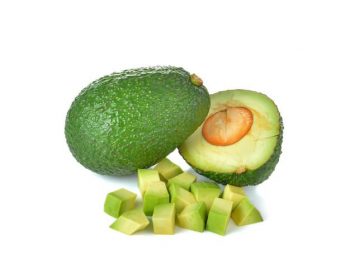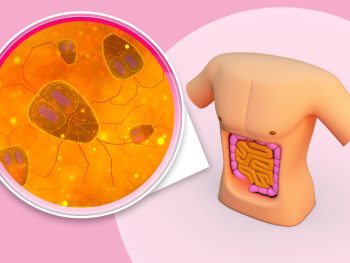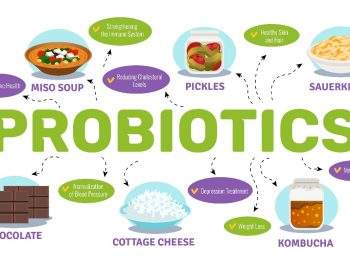Serotonin, commonly known as the “feel-good” neurotransmitter, is an important chemical in the human body. It plays a crucial role in regulating mood, sleep, appetite, and digestion. Understanding ” what is serotonin ? ” and how it functions can provide insights into its significance in mental health and overall well-being.

Table of Contents
What is Serotonin?
Serotonin is a monoamine neurotransmitter. It is primarily found in the brain, and intestines, as well as in blood platelets. Biochemically, it is derived from the amino acid tryptophan. Approximately 90-95% of the body’s serotonin is located in the gastrointestinal tract, where it helps regulate gut motility and function.
Functions of Serotonin
1. Mood Regulation
Serotonin is most recognized for its impact on mood. High levels of serotonin are associated with feelings of happiness and well-being. Low serotonin levels are linked to mood disorders such as depression and anxiety, making it a focal point in mental health research.
2. Sleep Patterns
Serotonin plays a key role in regulating the sleep-wake cycle. It is a precursor to melatonin. Melatonin is the hormone responsible for regulating sleep. Disruptions in serotonin levels can lead to sleep disorders, including insomnia.
3. Appetite Control
Serotonin significantly influences appetite and digestion. It signals the brain about hunger and fullness, playing a role in controlling food intake and digestion.
4. Cognitive Function
Research indicates that serotonin is involved in cognitive functions such as memory and learning. Adequate levels of serotonin can enhance focus and mental clarity.
5. Social Behavior
Serotonin affects social behavior and emotional stability. Higher serotonin activity is often linked to improved social interactions as well as reduced aggression.
6. Cardiovascular Health
Serotonin helps regulate blood vessel function, impacting blood pressure and cardiovascular health.
How Does Serotonin Work?
Serotonin transmits signals between nerve cells by binding to various serotonin receptors throughout the body. There are at least 14 different types of serotonin receptors, each associated with distinct physiological effects. The location and type of receptor determine the specific outcome when serotonin binds to it.
Factors Affecting Serotonin Levels
1. Diet
Foods rich in tryptophan, such as turkey, nuts, seeds, and dairy, can boost serotonin production. Consuming complex carbohydrates can also facilitate the absorption of tryptophan. List of foods that increase Serotonin levels naturally.
2. Exercise
Regular physical activity may enhance serotonin levels. Exercise increases tryptophan availability as well as stimulates serotonin production in the brain.
3. Sunlight Exposure
Exposure to sunlight can significantly increase serotonin levels. This is why some individuals may experience mood changes during winter due to reduced sunlight exposure, leading to Seasonal Affective Disorder (SAD).
4. Medications
Selective serotonin reuptake inhibitors (SSRIs) are a class of medications designed to increase serotonin levels in the brain. They are commonly prescribed for treating depression and anxiety disorders.
5. Stress and Mental Health
Chronic stress can negatively impact serotonin production. Conditions such as depression, anxiety, as well as PTSD are often associated with altered serotonin levels.

Serotonin Deficiency
A deficiency of serotonin can lead to a variety of physical and mental health issues. Some of the most common effects include:
- Depression
- Anxiety Disorders
- panic attacks
- Sleep Disturbances and Insomnia
- Changes in Appetite leading to weight gain or weight loss
- Mood Swings
- Irritability
- Fatigue
- Cognitive Issues like difficulty in concentration and decision-making
- Digestive issues
- Headaches
- Increased sensitivity to pain
EndNote
Understanding what is serotonin and its various functions in the body highlights its importance for not only mental, but also physical health. By maintaining healthy serotonin levels through diet, exercise, as well as lifestyle choices, individuals can support their emotional well-being and overall health. As research continues to explore the complexities of serotonin, it remains a key focus in understanding mood regulation and mental health treatment. By staying informed about serotonin, you can take proactive steps toward improving your mental health and overall well-being.
FAQs About Serotonin
Q: What are the symptoms of low serotonin levels?
A: Symptoms can include depression, anxiety, sleep disturbances, as well as changes in appetite.
Q: Can I increase serotonin levels naturally?
A: Yes, you can increase serotonin through diet, exercise, sunlight exposure, and stress management techniques.
Q: What role do SSRIs play in serotonin regulation?
A: SSRIs help increase serotonin levels in the brain by preventing reabsorption, as well as enhancing mood and emotional stability.















 Top Foods to Increase Platelet Count Naturally (Home Remedies)
Top Foods to Increase Platelet Count Naturally (Home Remedies)
Comment Policy:
We are glad you have chosen to leave a comment. We wish to inform you that the comments are moderated to avoid obscenity. Sometimes , we might take around 3 to 4 days to get back to you with the reply